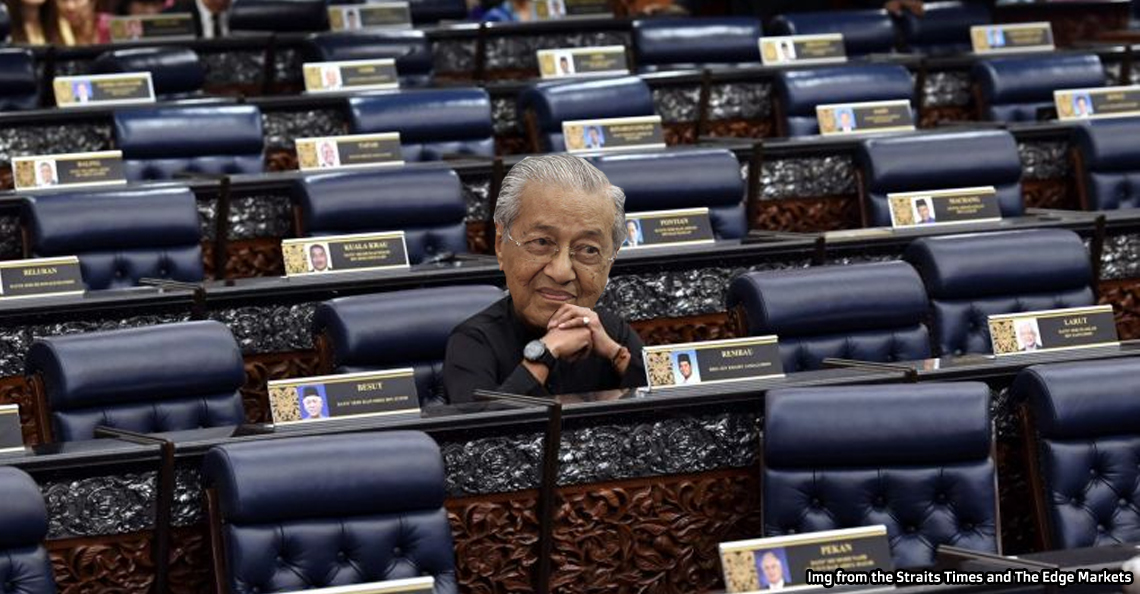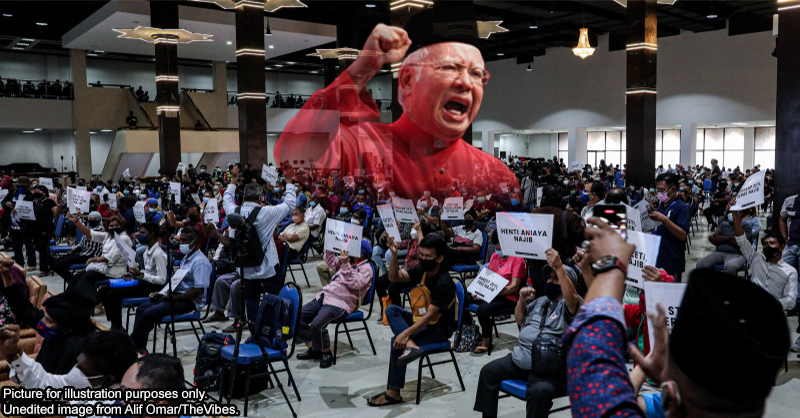The UEC has been around for years. Here’s why the gomen has yet to recognize it.

- 828Shares
- Facebook741
- Twitter3
- LinkedIn6
- Email14
- WhatsApp64
If you’ve been reading your healthy dose of news, you might have noticed the letters ‘UEC‘ popping up now and then and people arguing about whether or not to recognize it. We know, it’s not as huge a news as the Agong stepping down or past government scandals popping up, but the issue is kind of special, since you can see it as either an education, political or racial controversy, or all three at the same time.
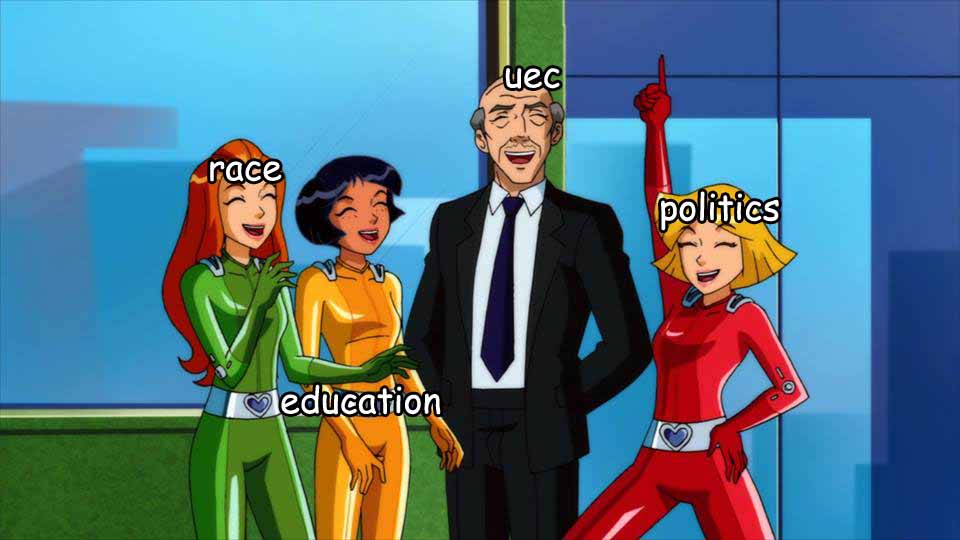
Basically, the UEC stands for the Engine Control Unit Unified Examinations Certificate, which is a cert you can only get by finishing high school at any one of the 60 Chinese private secondary schools, or better known as Sekolah Menengah Persendirian Cina (SMPC) in Malaysia. However, as of the time of writing, it is not recognized by the Malaysian government, and for years now supporters of the UEC have tried to get the government to do so.
Recently, Dr Mahathir (the current Prime Minister) was quoted by some news reports to say that the reason why the Pakatan government has yet to recognize it has something to do with the racial balance in Malaysia.
“Recognising UEC is easy, just sign. But we need time to bring two to three racial groups, including natives in Sabah and Sarawak, onto a same position of economic development. They (Malays) feel that they are getting lesser, and this kind of imbalance is getting bigger. In other countries there were riots and violence, but in Malaysia, the Malays, Chinese, and Indians can work and live together.” – Dr Mahathir, as reported by The Edge Markets.
For the full context, you can read the transcript of the interview here. Anyways, his statement caused an uproar among some politicians, but we’ll get to that later. To understand why people can get upset over a high school cert, it’s important to first go a little deeper into what the UEC is and how it came to be.
People came up with the UEC because the gomen stopped giving them exams

The story of how the UEC came to be stretches back to pre-Merdeka days, but we won’t bore you with the details. Essentially, back then the races living in Malaya go to different schools that teach different things in different languages, and at the end of the colonial era there was a plan to unify all these different schools into either English or Malay schools.
At first, the plan was to only allow one type of school that teaches either in BM or English, but a scholar named Lim Lian Geok fought for Chinese education in Malaya. He believed that Chinese people should not abandon their language and customs, so after… discussions, we reached a sort of compromise where the government recognizes Chinese schools at the primary level, but not at the secondary level.
Things went fine for a while, until the 1960s when the government again tried to standardize education, with the national language at the center of it. This gave birth to the 1961 Education Act, and among other things the Act specifies that only schools teaching in the national language will receive the government’s assistance. This led to many Chinese schools switching their languages and syllabus to that of the government’s, and those that didn’t switch went private and were pretty much unregulated.
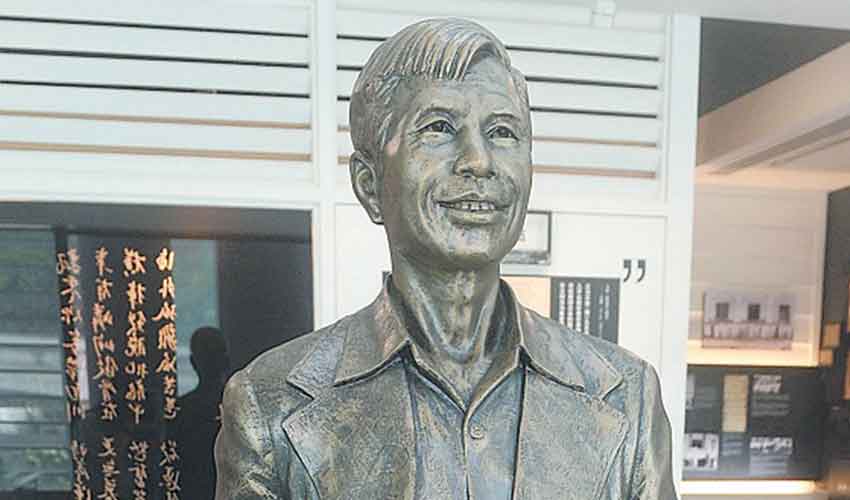
These schools became known as Chinese private secondary schools, and they are taken care of by two main organizations, the United Chinese School Teacher’s Association of Malaysia (Jiao Zong) and the United Chinese School Committees’ Association of Malaysia (Dong Zong), known collectively as the Dong Jiao Zong. Anyway, the 1961 Education Act also meant the government stopped giving exams to SMPCs, so after a few years the Dong Jiao Zong got together a committee and came up with the first ever standardized exams for SMPCs, called the UEC, in 1975.
However, it hadn’t been easy. Dr M was said to have tried to stop the first UEC from happening, and the Chinese community basically had to build the exam up from scratch. Today, UEC graduates come from 60 SMPCs throughout Malaysia, and the exam has been acknowledged through the ISO 9001:2008 quality management certificate by four countries, is accredited by about 300 local education institutions as well as 1,000+ colleges and universities throughout the world. Despite its success, one might wonder…
So how come the government still don’t recognize the UEC?

Since the government still don’t recognize the UEC, holders of the cert are missing out on acceptance into public universities, as well as a career in the public service (except in Sarawak, Selangor, Penang and Malacca, where it has been recognized at the state level). UEC holders can still apply for PTPTN loans and enroll in local teacher training colleges though, but regardless of all that, is there a specific reason why we’re not recognizing this local cert, even after 44 years?
The reason given by the previous government is that the syllabus of the UEC does not follow the national education curriculum, and since it is thought that the teaching medium is mainly Chinese, there were concerns about the students’ lack of proficiency in BM. In 2015, the then government had stated that they will consider recognizing the UEC if the curriculum is reviewed to reflect the national education system, but as it turns out, discord between the systems is just one factor. There are quite strong sentiments from the public regarding UEC’s recognition as well.
After the government announced its intention to recognize the UEC in July, protests erupted. The Gerakan Mahasiswa Islam se-Malaysia (Gamis) organized a 400-student demonstration in KL to protest the move, claiming that it could fracture national unity. They also claim that their protest was in support of the Education Minister, Maszlee Malik, whom they believe have been pressured into recognizing the UEC.
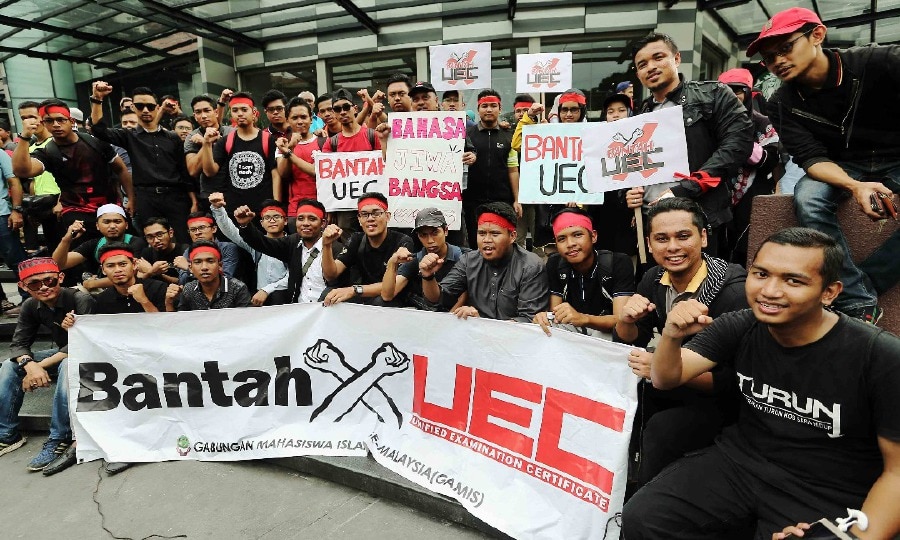
Another Malay-Muslim coalition of groups calling themselves Ummah, on the other hand, had threatened Maszlee with a protest if he ignores their call to not recognize the UEC. And Umno’s vice-president, Datuk Seri Ismail Sabri, had called the UEC a ‘unity destroying agent‘, and he had accused plans of recognizing the UEC to be a conspiracy by Chinese political parties to pressure the Pakatan government to gradually remove the Bumiputra rights policy.
“I’m confident that Malays in general will oppose to this certificate because it will lower the standards of public schools, which will as a result, pose a challenge for our graduates to enter the job market. This special treatment to UEC is not fair to SPM graduates,” – Datuk Seri Ismail Sabri, as reported by the Star.
The portal pendidik2u.my also did a polling survey back in August, and among their 127,224 respondents, more than half (59%) have disagreed with the UEC’s recognition. The same result happened when they did a preliminary survey among teachers on social media: the majority disagreed. While Dong Jiao Zong had defended the UEC, saying that more than half of their history lessons are about Malaysia and that they have taken efforts to ensure that the Malay language is not neglected, the sentiment seems to remain.
With such prevailing notions about the UEC, one might wonder…
Will we ever recognize the UEC?
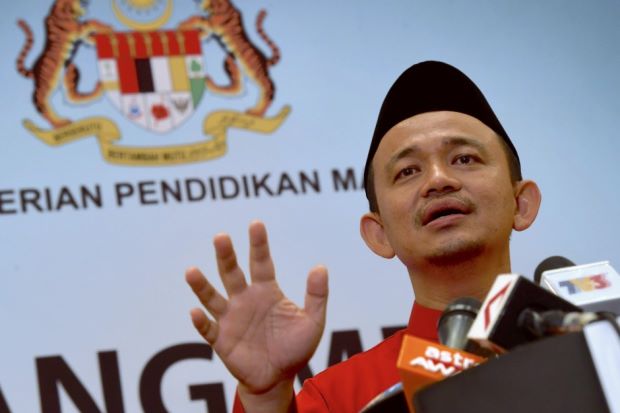
One of the promises made by the Pakatan government in its election manifesto had been to recognize UEC holders provided they get at least a credit in SPM’s Bahasa Malaysia paper. Despite the promise, people are having doubts about it, and the doubts started back when Maszlee announced in July that the Education Ministry would ‘carry out a holistic study‘ before making a decision. This includes taking into account the views of all quarters, the interests regarding BM as the national language, and the impact of the recognition.
While Maszlee had stated that they must address the public’s prejudiced view towards the UEC first before making any decision, some see this move as a declaration of uncertainty: if the results of the study are unfavorable, would the Pakatan go back on their promise? Within the same month, conflicting statements were issued by Pakatan politicians as well. While the deputy Education Minister, Teo Nie Ching, had stated that UEC holders only needs a credit in BM to be recognized, Datuk Dr Rais Hussin, chairman of Pakatan’s manifesto committee, as well as two other educationists had said that a passing grade in SPM History will be needed as well.
However, he had also reassured that the recognition will happen, but maybe not ASAP as it’s not part of the 100-day promises.
“This doesn’t mean that we will wait till the end of our term to fulfill this promise, but this is a matter pertaining to our National Education Policy, it cannot be rushed. It’s not like frying eggs.” – Datuk Dr Rais Hussin, to FMT.

So far, the progress announced to the public had been the setting up of an independent committee to start the fact-finding work on the UEC’s recognition, but some are still not convinced. Kua Kia Soong, Suaram adviser, had called this whole UEC issue a farce and had accused the PM and his party to have had no intention to recognize the UEC from the start.
Datuk Sebastian Ting Chew Yew, SUPP’s Secretary-General, feel the same, saying that UEC recognition under the PH government is unlikely with regard to Mahathir’s recent statement. He pointed out that all the time that Mahathir had been the Education Minister (1974-1976), Deputy PM (1976-1981) and Prime Minister (1981-2003), the UEC has yet to be recognized.
“It would have been easy for him if he had wanted to. It is therefore a fair statement to say that our Prime Minister will never agree to the recognition of UEC so long as he is our Prime Minister… Lim Kit Siang and Lim Guan Eng always shouted the loudest, till May 2018. Since then, they don’t see, don’t hear and don’t speak anymore on this,” – Datuk Sebastian Ting Chew Yew, to the Borneo Post.
Dashed hopes and dreams aside…
The problem with our education system may be more than just the UEC

After his statement blew up and protests start flying, Mahathir had came forth and said that the report had been inaccurate and unlike what he had said.
“I did not say that I reject (the UEC). I just said that there are sensitivities among the Malays in the matter and we take into account all the sensitivities, including those of the Chinese, Indians, Orang Asli and other races in Malaysia. If we are not sensitive, then we will not win the support of the people. If I say the Malays are sensitive in this matter, it does not mean I am not sensitive to the other people,” – Dr M, as reported by NST.
Regardless of misquoting by the media or other underlying causes, it would seem that it will still be quite a while before the UEC will be recognized by the Malaysian government. In the mean time, there is something to be said about the existence of different kind of schools within our education system. While parents now have more choices regarding their children’s education, it might point out to a lack of faith in our national education system on the parents’ part.
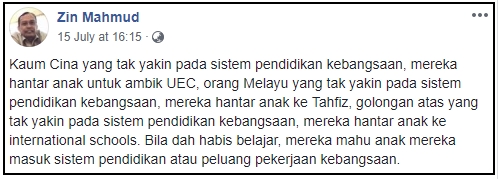
According to a report by the International School Consultancy (ISC), Malaysia has the most number of students attending English International Schools compared to other countries in the southeast Asian region. There might be a reason why parents might choose to send off their kids to tahfizs or international schools or Chinese private schools instead of national schools, and it would do well for Malaysia to find that reason and fix it, if we’re really serious about the whole unity-in-education thing.
In any case, there had been talks on improving the national school system as a whole, so let’s hope that the momentum doesn’t die out, for the sake of educating the next generation of Malaysians.
- 828Shares
- Facebook741
- Twitter3
- LinkedIn6
- Email14
- WhatsApp64

